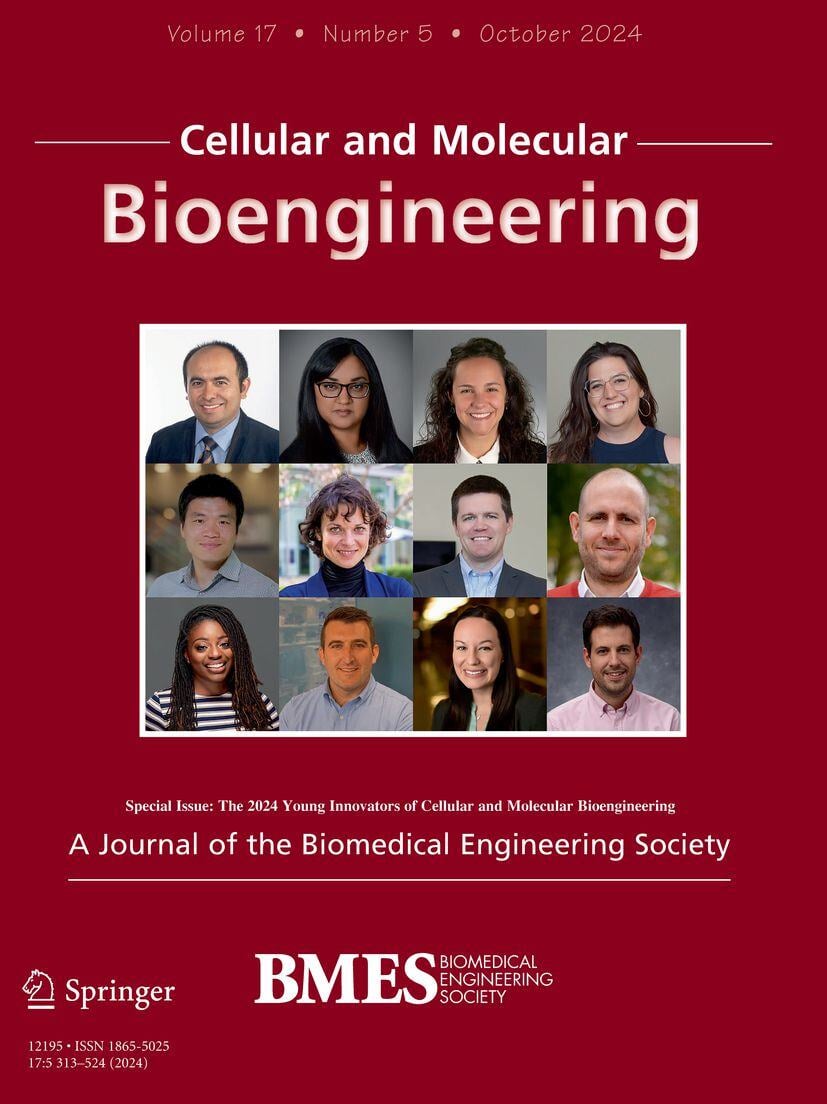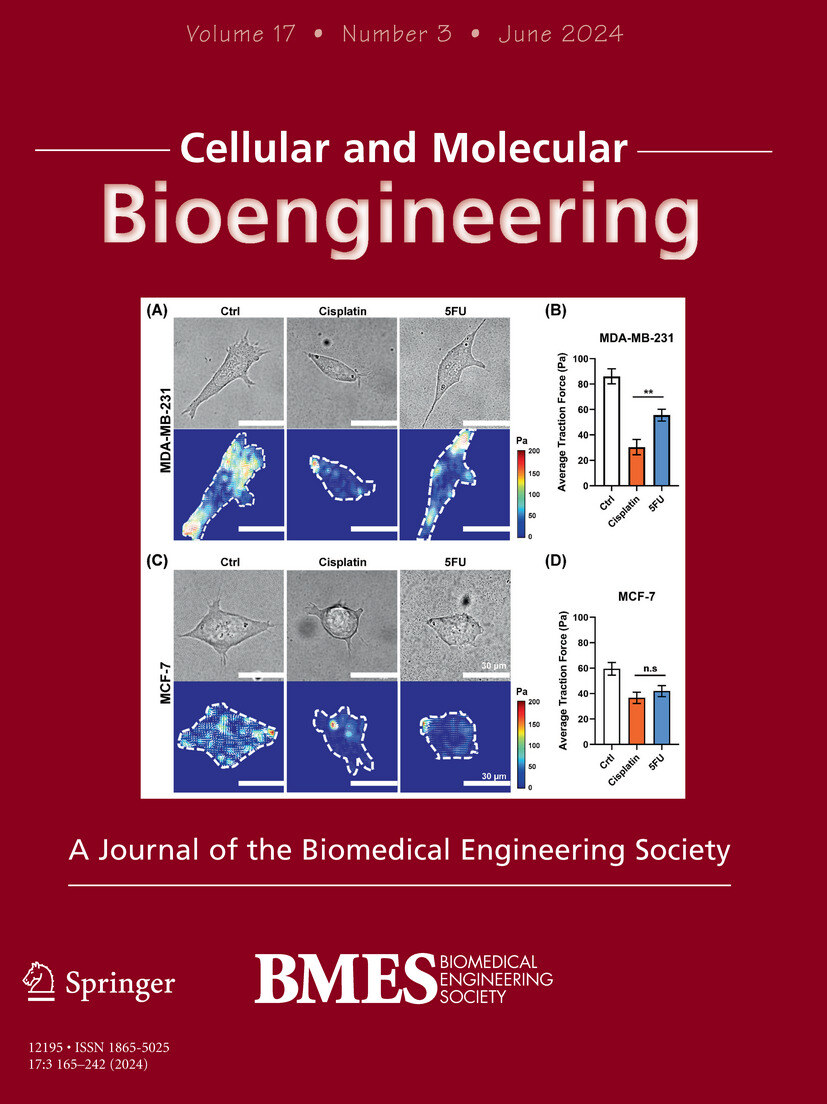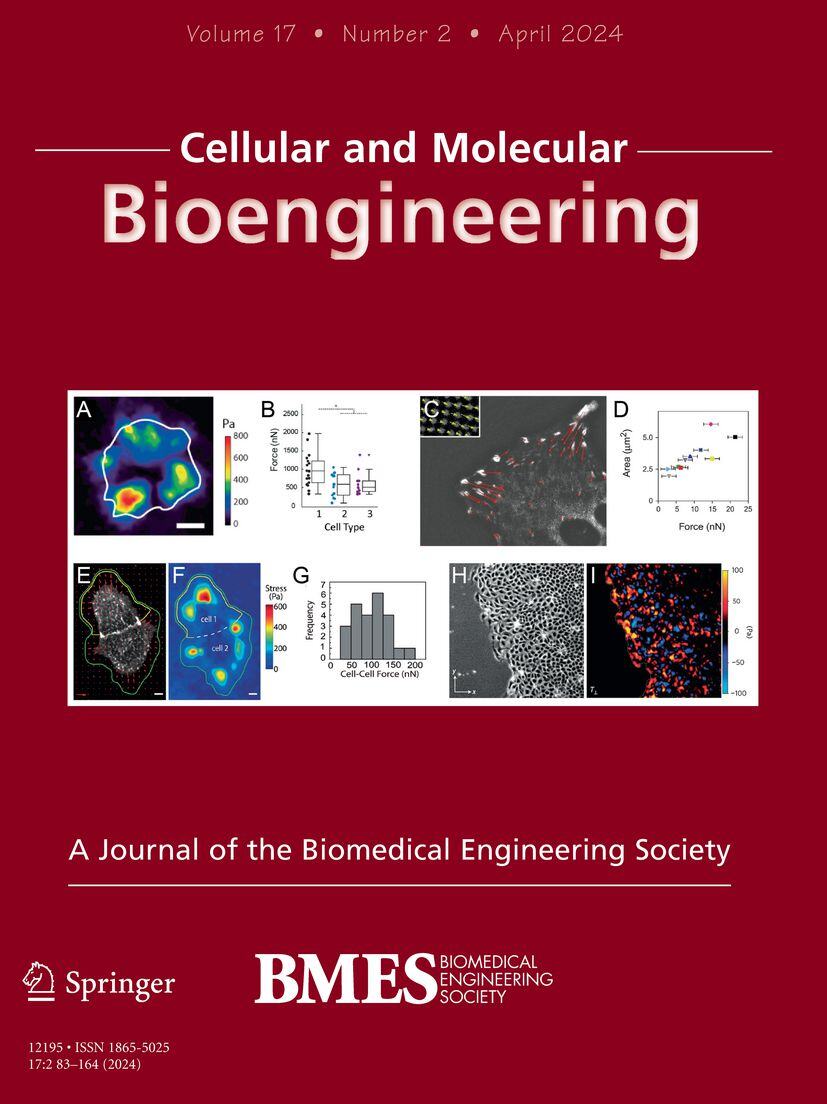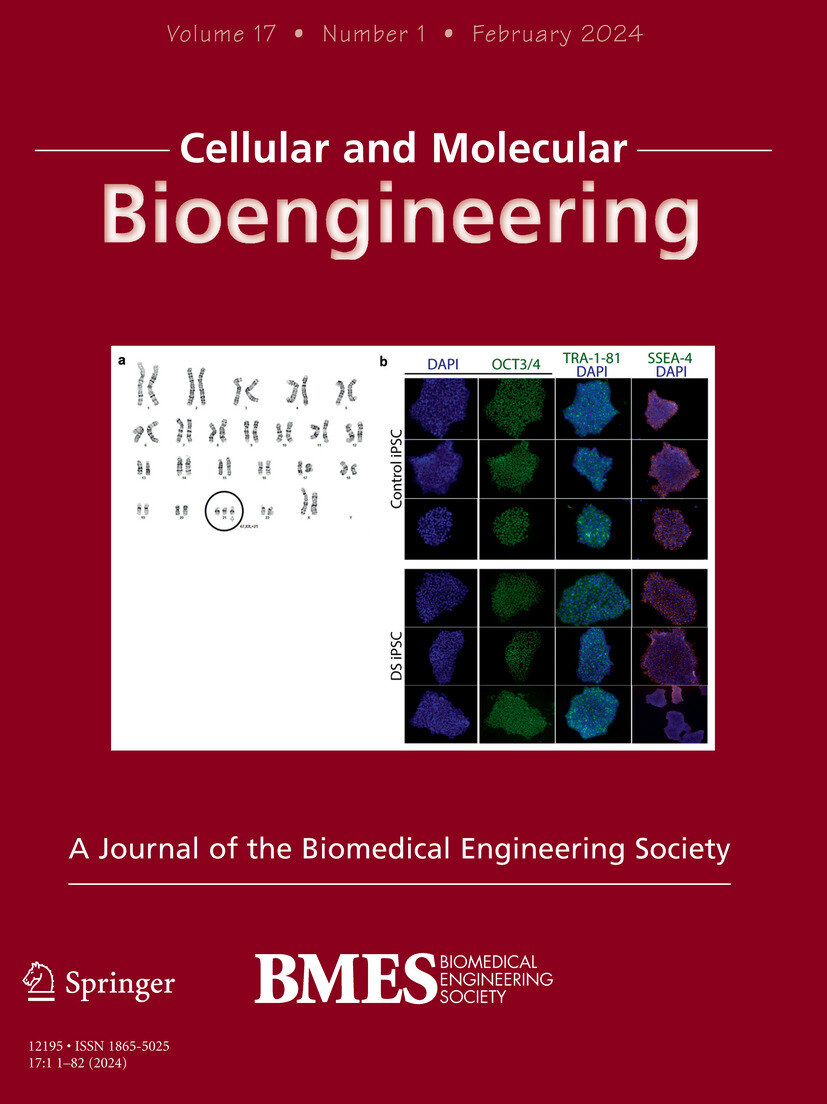Cellular and Molecular Bioengineering

Cellular and Molecular Bioengineering is an official journal of the Biomedical Engineering Society, publishing original research that advances the study and control of mechanical, chemical, and electrical processes of the cell. A key challenge in improving human health is to understand how cellular behavior arises from molecular-level interactions. The field of cellular and molecular bioengineering seeks to understand, so that we may ultimately control, the mechanical, chemical, and electrical processes of the cell.
The aims of this journal are to publish experimental and theoretical studies that advance our understanding of (1) the biomechanics of cells, including their interaction with the extracellular environment, and of biomolecules, including proteins, lipids, polysaccharides, and nucleic acids; (2) the chemical thermodynamics, kinetics, and transport processes associated with biomolecular interactions and cellular processes; and (3) electrical processes that underlie cell behavior. In addition, an overarching aim is to integrate our understanding of mechanical, chemical, and electrical processes to better understand the integrated, systems nature of cellular processes.
Journal Aim and Scope
-
Learn More
The field of cellular and molecular bioengineering seeks to understand, so that we may ultimately control, the mechanical, chemical, and electrical processes of the cell. A key challenge in improving human health is to understand how cellular behavior arises from molecular-level interactions. CMBE, an official journal of the Biomedical Engineering Society, publishes original research and review papers in the following seven general areas:
Molecular: DNA-protein/RNA-protein interactions, protein folding and function, protein-protein and receptor-ligand interactions, lipids, polysaccharides, molecular motors, and the biophysics of macromolecules that function as therapeutics or engineered matrices, for example.
Cellular: Studies of how cells sense physicochemical events surrounding and within cells, and how cells transduce these events into biological responses. Specific cell processes of interest include cell growth, differentiation, migration, signal transduction, protein secretion and transport, gene expression and regulation, and cell-matrix interactions.
Mechanobiology: The mechanical properties of cells and biomolecules, cellular/molecular force generation and adhesion, the response of cells to their mechanical microenvironment, and mechanotransduction in response to various physical forces such as fluid shear stress.
Nanomedicine: The engineering of nanoparticles for advanced drug delivery and molecular imaging applications, with particular focus on the interaction of such particles with living cells. Also, the application of nanostructured materials to control the behavior of cells and biomolecules.
Systems Biology: Multiple-scale analysis and simulation of complex biological systems, with a special emphasis on gene-to-cellular level phenomena. Studies that compare model predictions with existing or newly collected experimental data sets are especially encouraged.
Clinical and Translational: The application of cellular and molecular scale devices and concepts in clinical research, personalized medicine and point-of-care diagnostics, and the translation of bioengineering research from the bench to bedside.









